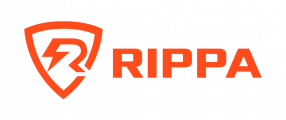
Understand How Search Engines Work
Google’s index, which is built primarily through web crawling, contains trillions of web pages. When you enter a query into Google, it returns all pages that match.
Because there are frequently millions of relevant results, Google’s algorithm ranks them using hundreds of factors. Nobody knows what these factors are or how they are weighted, but we do know some of them.
SEO only has an impact on the so-called organic results. It has no effect on paid advertisements.
In this post, you’ll learn more about those factors.
Recognize The Three Most Important Ranking Factors
Many people become engrossed in optimizing for ranking factors that aren’t all that important. So, before you start worrying about page speed or title tags, make sure you’re on top of the three major ones.
Relevance
This metric measures how well your page matches the query.
If someone searches for “how to make lavender oil,” Google will not return pages about cars because they are irrelevant.
But relevance extends beyond that. Your page should also reflect the type of content that people want to see.
A person searching “how to make lavender oil,” for example, is looking for a tutorial. They are not looking to purchase pre-made lavender oil. As a result, all of the results on the first page are blog posts rather than product pages.
Authority
This is largely determined by backlinks.
Google considers links to be votes of confidence. The more high-quality backlinks you have, the higher you’re likely to rank.
The best backlinks have two characteristics in common: authority and relevance.
The power of the linking website and web page is referred to as authority. We have two metrics for measuring this at Ahrefs: Domain Rating and URL Rating. The most effective links come from high-UR pages.
The topic of the linking website and web page is relevant. For example, if a post about how to make lavender oil has two backlinks, one from a tech blog and one from a health website, the one from the health website is most likely more relevant. However, page-level relevance also matters. If the linking page on the tech website is about a relevant topic, such as the best smart diffusers, and the one on the health website is about a completely unrelated topic, such as bodybuilding, the link from the tech website may be more relevant.
Utility
Google strives to place the best possible result at the top of the search results. That is, simply matching search intent isn’t enough. Your content must be the most deserving of the number one spot.
However, what constitutes quality and utility is determined by the search query itself. So the best course of action is to examine the current top-ranking pages and determine what they do well and where they fall short.
For example, this calculator works well on desktop but is ineffective for mobile visitors because it is nearly impossible to use on mobile.
Understand The Four Major SEO Buckets
Consider SEO to be a puzzle with many pieces. Understanding how they work together is critical for any industry professional.
- The four pieces are as follows:
- Keyword investigation;
- SEO on-page;
- Creating links;
- SEO for technical purposes
Let’s Take a Look at What Each of These Entails
Keyword Investigation
Finding relevant words and phrases that people type into search engines like Google is what keyword research entails.
In general, you should aim for keywords that:
Have “traffic potential” (that is, they are likely to send you organic traffic if you rank for them);
Have “business value” (that is, they are likely to attract new customers);
Aren’t you overly competitive?
Enter a few ideas into Ahrefs’ Keywords Explorer and look at one of the keyword ideas reports to find keywords that fit the bill.
On-Page SEO
On-page SEO is the practise of optimising web pages to help improve rankings and attract more organic search traffic.
Here are some examples:
- Search intent optimisation;
- Utilizing keyword modifiers in title tags;
- Creating appealing meta titles and descriptions
- Using image alt tags that are descriptive;
- Internal links to pages you want to rank.
- Creating links
The process of acquiring new backlinks from third-party websites is known as link building. They not only help to improve rankings and increase organic traffic, but they can also send referral traffic your way.
SEO For Technical Purposes
Technical SEO entails optimising your website so that search engines can efficiently crawl and index your content and visitors have a positive user experience.
Here are some examples:
Increasing page speed;
repairing (internal and external) broken links
Canonical tags are used to prevent duplicate content.
Incorporating hreflang tags into multilingual content;
Increasing crawl efficiency by optimising robots.txt;
Thin content is not indexed.
Narrow Your Focus
Master of none, jack of all trades
That’s what you’ll be at the start of your SEO journey because you’ll need to learn a little bit about everything in order to have a solid foundation in the field.
However, you must progress past that over time.
Here are two approaches:
A. Become an expert in one area of SEO
You won’t have time to become an expert in both link building and technical SEO because SEO is such a broad field. Because there is so little overlap between the two, improving one does not necessarily improve the other.
Instead, you should train to be a SEO expert.
Being an SEO expert entails having broad skills in all aspects of SEO while excelling in one particular area.
Establish Systems and Delegate Authority
The more you learn about SEO, the more you’ll realise there aren’t enough hours in the day to do it all.
Even if there was, doing so would be inefficient.
Being a “SEO expert” implies that there are others who are better suited to handle most SEO tasks than you. Delegating those tasks to the right people frees up your time to focus on what you’re good at and enjoy doing.
You Should Never Stop Learning
SEO is a fast-paced industry. Google reported making over 3,200 algorithm updates in 2018.
Although many of these updates were minor for users, they demonstrate how quickly “best practices” in SEO can change. Keeping up with every minor change made by Google, on the other hand, is likely to be a futile effort, so it’s best to focus on the fundamentals.
In other words, rather than chasing algorithm changes, pursue what the algorithm is attempting to do: provide users with the best and most relevant content. You won’t have to worry as much about updates and penalties this way.
Is this to say you shouldn’t network and follow experts in order to broaden your opportunities and stay on top of valuable new strategies? Of course not. So here are a few suggestions:
Attend local SEO meetups; attend SEO conferences; connect with SEO professionals on LinkedIn; follow SEO experts on Twitter; join Slack communities; join Facebook groups; read SEO blogs; watch videos;
Stream podcasts
Choose the ones that appeal to you the most, but don’t overdo it. Use the Pareto principle and spend 80% of your time doing and 20% of your time learning.
For example, if your expertise is in keyword research and writing content that ranks, you should devote your time to those activities. You can hire someone to help you with tasks like link building and technical SEO.
Aside from saving time, your clients will receive better service because they will have highly specialised people working on all aspects of their SEO.
More people, on the other hand, means more moving parts, which can lead to things falling through the cracks.
Developing systems is the most effective way to keep everyone on the same page. This entails developing SEO checklists (or SOPs) for each project in order to keep things on track.
Be Patient.
Mastering a new skill requires 10,000 hours of practice. Is it possible to do less? Possibly. But the point is, becoming an SEO expert is not a quick process.
So, don’t be discouraged if your content does not appear on the first page of Google within the first few weeks.



